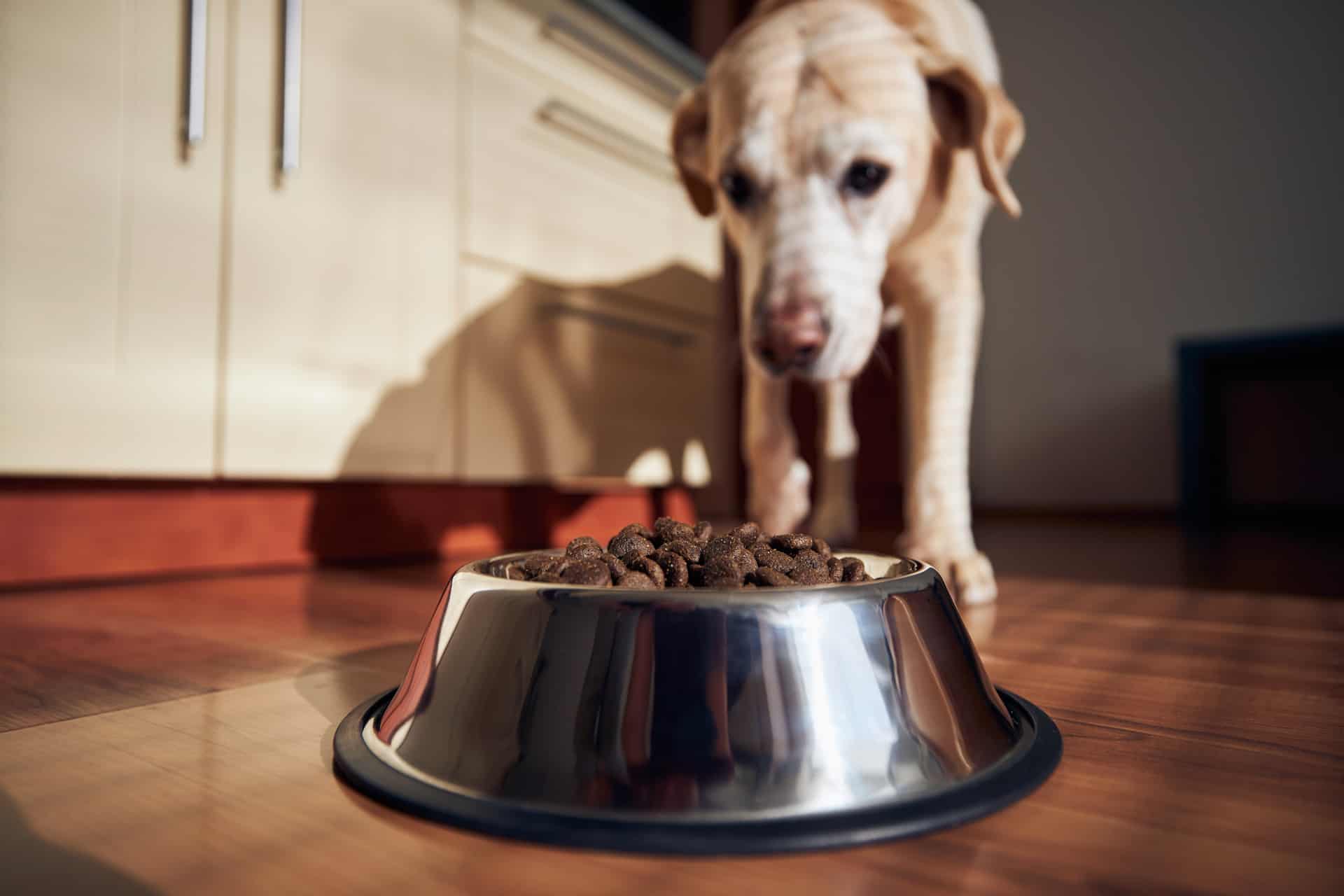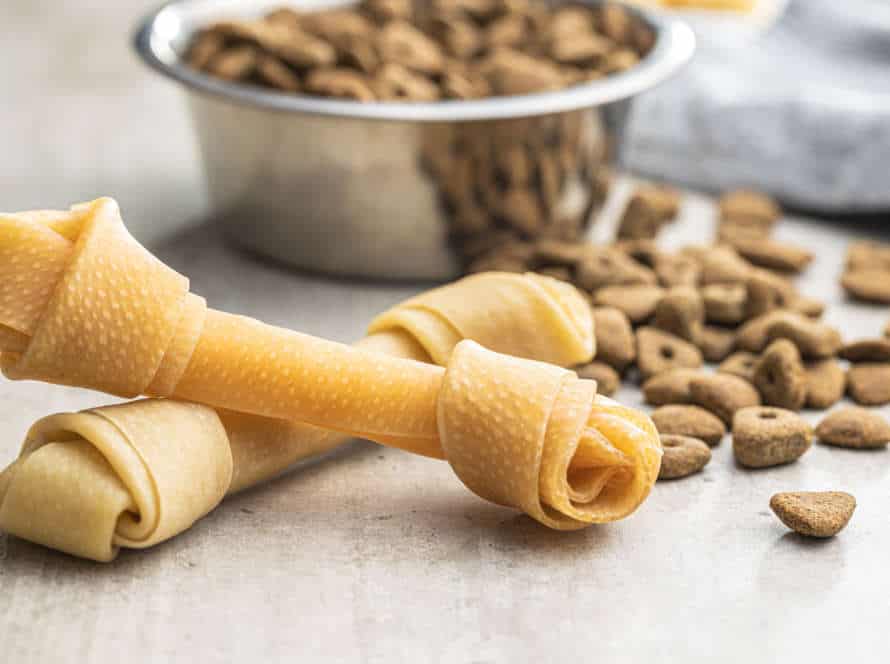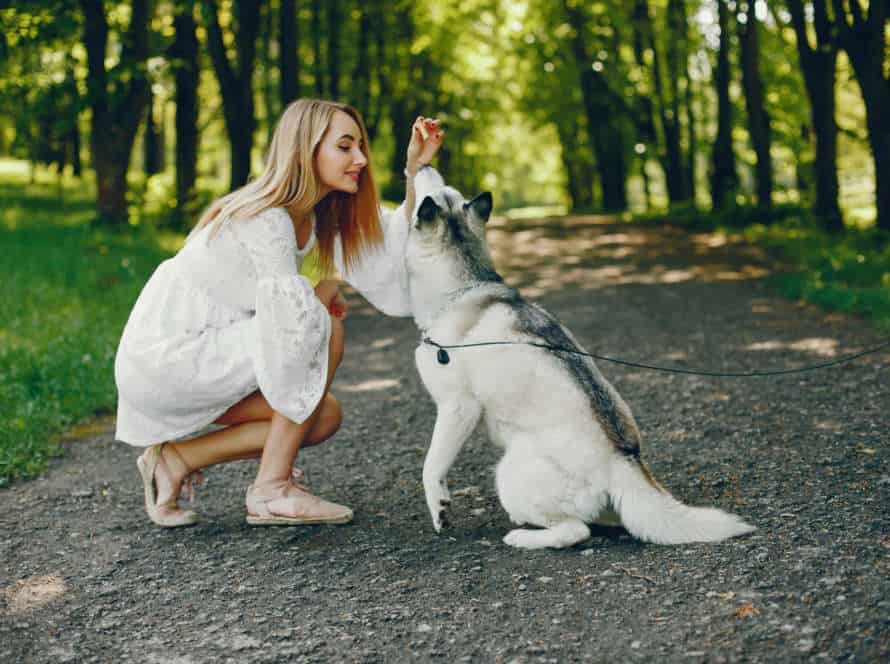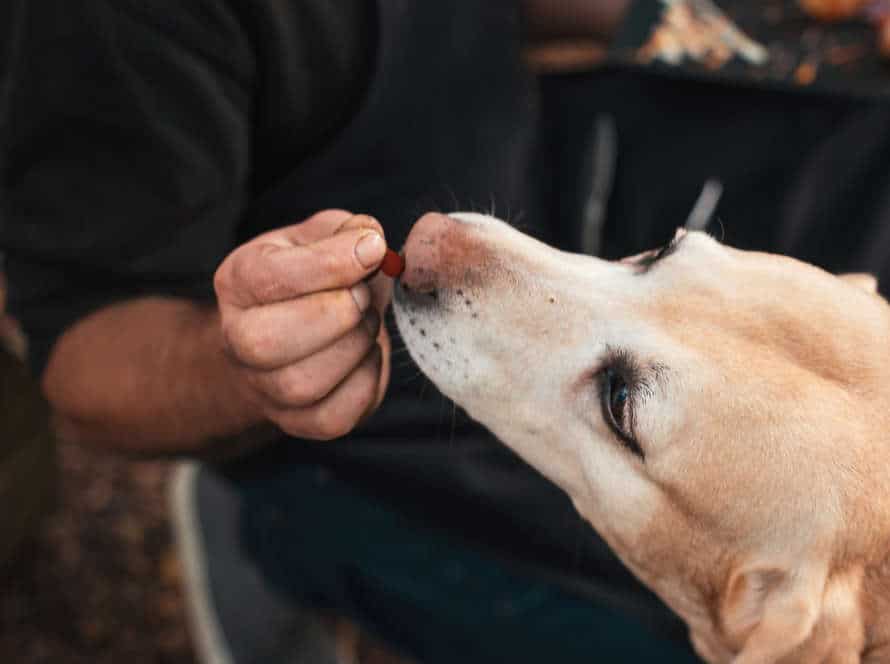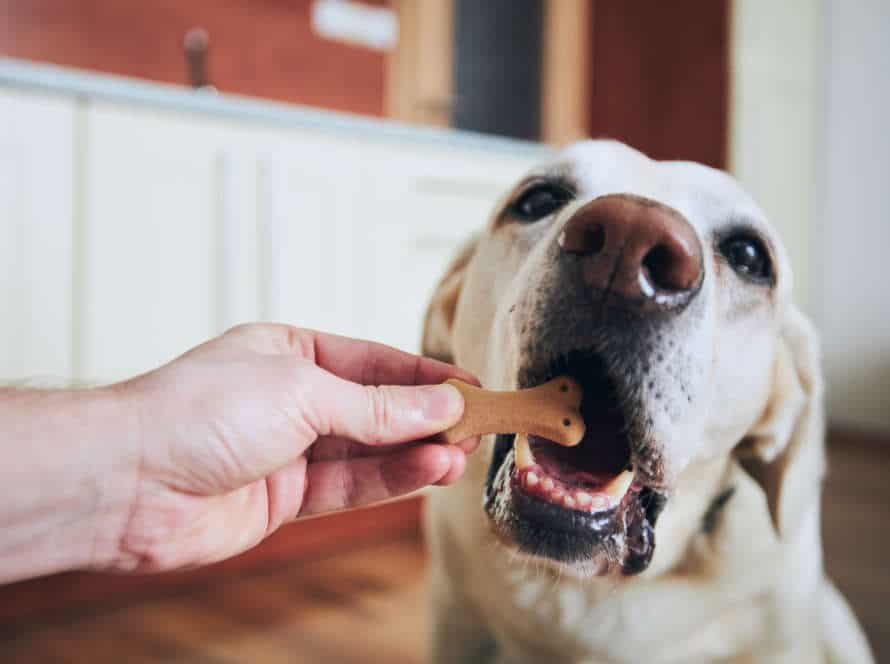Understanding Your Aging Dog’s Nutritional Needs
As your pup ages, they might need a diet specifically designed to give them the necessary nutrients. This can be difficult. So, it’s key to know your older dog’s dietary needs. Knowing these needs can help you make the best diet for them. This will keep them healthy and joyful.
Changes in your dog’s digestive system
As dogs age, their digestive systems change. These changes affect nutrition needs and food processing. Common changes include:
- Decreased enzyme production
- Slower GI motility
- Reduced nutrient absorption
To support your older pup’s digestion and wellbeing, provide digestible, nutrient-rich food specially made for seniors. Smaller meals throughout the day can help prevent GI discomfort and balance blood sugar. Talk to your vet about your dog’s specific nutritional needs. And monitor digestion and stool quality often.
By understanding and addressing the changes in your dog’s digestion, you can help them stay healthy and happy in their senior years.
Changes in your dog’s metabolism
As dogs age, their metabolism and nutritional needs alter. These changes require revisions to their diet and feeding routine.
- Slower metabolism: As age increases, metabolism slows down. This leads to reduced activity and digestion.
- Greater obesity risk: Lower metabolism paired with less activity boosts an old dog’s chance of gaining weight and becoming obese.
- Decreased hunger: Tooth loss, dental issues, or changes in smell and taste can dim a senior dog’s appetite.
- Health troubles: Aging dogs may develop medical problems, like diabetes, kidney disease, or arthritis. These can affect their diet and feeding regimen.
To make sure your aged dog has the best nutrition and health, it’s essential to check with your vet. Adjust the diet and feeding routine to fit their changing needs.
Changes in your dog’s energy level
Changes in your dog’s energy might be a sign of old age or health issues. As they age, their nutrition needs change. Older dogs may need fewer calories but more protein. Here are some tips:
- Opt for quality protein sources such as chicken, beef, and fish.
- Choose foods like veggies, fruits, and grains that are rich in nutrients.
- Avoid fillers and by-products in their food.
- Talk to the vet to see if they need extra supplements or changes to their diet.
For extra help: Regular exercise and consistent feeding schedules help keep an aging dog’s energy up and health in check.
Feeding Your Aging Dog: What You Need to Know
Your pup’s senior years are coming soon. Offer the right diet to keep them healthy. You need to know their nutritional needs. This guide will help you understand. It’s the key to giving them a long, healthy life. It’ll help keep them in peak condition.
Choosing the right type of dog food for your aging dog
For optimal health and well-being in their golden years, it’s essential to pick the right type of dog food for your aging pup. Some things to take into account when selecting the best food for them are:
- A dog food formulated specifically for seniors – their nutritional needs differ from younger dogs.
- High-quality proteins like chicken or turkey – helping to keep muscle mass and avoiding weight gain.
- Easily digestible carbohydrates and fiber – for healthy digestion and regular bowel movements.
- Kibble size and texture – as some older dogs may have dental issues that require softer or smaller kibble.
By choosing a dog food that fits all these criteria, you can help your aging pup keep their energy, vitality, and overall health.
Decoding dog food labels and ingredients
Unlock the secrets of your pup’s food! It can help you give the best nutrition for your aging doggo. Here’s how:
- Look for high-quality proteins like meat or fish listed first.
- Skip by-product or meat meal as main ingredients. These are of poor quality.
- No artificial additives like preservatives, colors or flavorings. These can be bad for your pup.
- Choose food with special needs like weight or joint health in mind.
- Check guaranteed analysis to know the nutrient content.
- Pro tip: Ask your vet what type and amount of food to feed your doggo based on their health needs.
Creating a feeding schedule for your aging dog
As dogs age, their dietary needs shift. Making a food plan to fit these changes will make sure your aged pup is healthy and happy. Consider these 3 things when creating this plan:
- Health: Does your pup have any health issues that need special diet attention?
- Exercise: Is your pup still active or has their playtime slowed down? This affects how much they eat.
- Weight: Are they at a healthy weight, or do they need to gain/lose?
Once you’ve thought about this, it’s time to plan meals. Here’s an example:
- Morning: 0.5 cup of dry kibble & 0.25 cup of wet food.
- Mid-day: 0.25 cup of dry kibble.
- Evening: 0.5 cup of dry kibble & 0.25 cup of wet food.
Remember to check in with your vet to make sure your pup’s meal plan is just right for them.
Nutritional Supplements for Your Aging Dog
As our beloved four-legged pals grow old, their metabolism slows down. This makes it harder to digest and take in important nutrients for their optimal health. To help them stay healthy, adding extra nutrition can be useful. Here, we will chat about the various types of nutritional supplements that can benefit your aging pup’s dietary requirements.
Types of supplements for dogs
As dogs age, they need extra nutrition. So, there are supplements that can be useful. Here are a few common ones:
- Glucosamine and chondroitin to help joint health and reduce arthritis symptoms.
- Omega-3 fatty acids for anti-inflammatory properties and benefits like skin and coat health, joint health and cognitive function.
- Probiotics improve digestion and gut health, lessening the risk of gastrointestinal issues.
- And multivitamins to guarantee your dog gets all the vitamins and minerals for optimal health.
Remember to chat with your vet before starting any supplement for your dog’s particular needs.
Benefits and risks of supplements for aging dogs
Aging dogs need different nutrition. Some pet owners give their pet dietary supplements to support their health. Supplements can be good, but they can also be bad.
Benefits of supplements like glucosamine, chondroitin, and fish oil include reducing inflammation, better joint health, and healthy skin/coat. Plus, they can give energy and help the immune system.
But, high doses of vitamins and minerals can be toxic. Also, supplements may interfere with other medications.
Before using any supplements for an aging dog, talk to a vet. They can tell you if the supplements are safe and what is best for your dog. They can also recommend specific products and the right dosage.
Choosing the right supplements for your aging dog
Picking the right supplements for your aged pup is essential for keeping up their well-being and health. Before selecting any supplements, think about your pup’s breed, age, and overall health.
Here are some popular nutrients for aging dogs:
- Glucosamine and Chondroitin: These supplements are necessary for keeping up joint health, flexibility, and movement in mature dogs.
- Omega-3 Fatty Acids: Omega-3 supplements help reduce inflammation and improve cognitive function in senior dogs.
- Probiotics: Probiotic supplements help digestion and boost gut health in aging dogs with weaker immunity.
- Antioxidants: Vitamins E and C are advised for elderly pups to boost their immunity and prevent cell damage.
Always consult your vet before adding any new supplements to your pup’s diet to guarantee it’s suitable for their unique needs.
Health Issues and Nutrition for Aging Dogs
Your older pup may have been eating the same grub for a while, but aging brings new health issues. Choosing the right food is essential for keeping Fido healthy and active. What health problems can arise? What nutrition is best for these issues? Let’s find out!
Common health issues faced by aging dogs
As dogs get older, they become more prone to health issues that can lessen their quality of life. Common ones include arthritis, tooth problems, vision/hearing loss, cancer, and mental decline.
To stop and manage these issues, good nutrition is key. Here are tips for feeding your aged pup:
- Get high-grade senior doggy food with all the vital nutrients such as vitamins and minerals.
- Think about wet food or moistening dry food for easier eating and digestion.
- Serve smaller, more frequent meals to avoid digestive issues.
- Adapt portion size to keep them at a healthy weight.
- See your vet for help in picking the best diet for your elderly hound, tailored to their needs.
The impact of nutrition on managing age-related health issues
Managing our furry friends’ health is essential as they age. Nutrition is a fundamental part of their wellbeing. A balanced diet loaded with minerals and nutrients helps to prevent and address age-related health issues. Notable advantages of proper nutrition include:
- Maintaining healthy weight. As older dogs tend to be less active, weight management is difficult. A balanced diet can control their calorie consumption and prevent obesity, which is a risk factor for many health issues.
- Strengthening their immune system. A diet packed with antioxidants and vitamins can strengthen their immune system and protect them from infections and chronic diseases.
- Improving joint health. Senior dogs often have pain and stiffness in their joints. A diet with glucosamine, chondroitin, and omega-3 fatty acids can benefit their joint health and mobility.
- Slowing cognitive decline. Nutrition can also help slow cognitive decline associated with aging.
Pro Tip: Consult with a vet to create a customized diet plan that meets your aging dog’s specific needs.
Specialized diets for health conditions in aging dogs
Ageing dogs can have health conditions that need special diets to keep them healthy and happy. Here are some diets for older dogs and their health issues:
- Low-fat diets: Great for dogs with pancreatitis, liver disease or GI troubles. These diets reduce stress on the digestive system since fatty foods could be hard to digest.
- High-fiber diets: Good for dogs with constipation or diarrhea. High-fiber diets regulate bowel movements, protect the colon and reduce inflammation. They contain lots of insoluble fiber like whole grains, veggies and fruit.
- Low-sodium or heart-healthy diets: Perfect for dogs with heart disease, high blood pressure or kidney problems. They lessen fluid retention, keep electrolyte balance and protect vital organs.
- Prescription weight management diets: Perfect for overweight or obese dogs. These diets have balanced nutrition, fewer calories, and increased protein and fiber for weight loss.
Consult your vet before changing your dog’s diet. This helps make the transition smoother and helps your pup stay healthy.
Adjusting Your Aging Dog’s Feeding Habits
It’s essential to adjust the feeding habits of your aging dog. They may need more or less food, diverse food, and more feedings. Here’s a guide to prime nutrition for an aging pup. We’ll look at the best foods, a suitable feeding schedule, and nutrient requirements for your pooch.
Indicators that your dog’s feeding habits need to be adjusted
Stay alert for signs that your pup may need a new feeding plan. These could be either physical or behavioural. Here are some to watch out for:
Behavioural:
- Pestering for food, even after eating.
- Losing interest in meals.
- Changes in activity and appetite.
Physical:
- Weight loss/gain.
- Coat is dull.
- Digestive issues: vomiting and diarrhea.
- Difficulty moving.
If these show up, talk to your vet about a tailored diet for your doggy!
How to slowly transition your aging dog to a new diet
Diet-changing for your ageing pup can be tricky. But, with patience and preparation, you can make the shift easy, helping your pup stay healthy and content in their senior years. Here’s how:
- Begin by adding a little of the new food to their current diet. Over the course of 7-10 days, gradually increase the amount. This helps them get used to the taste and texture.
- During the transition, keep an eye on their digestion, energy, and overall health. If anything goes awry, talk to your vet to adjust the diet.
- Think about the specific nutritional needs of your ageing pup. Such as high-quality protein, joint support, and digestive health. Consult your vet for the ideal diet plan.
By slowly transitioning your pup to a new diet, they can enjoy their golden years with the best nutrition and health.
Monitoring your aging dog’s health and nutrition
It’s vital to take care of your aging dog’s health and nutrition. A balanced, healthy diet is essential. Here are some tips for adjusting their feeding habits:
- Evaluate their weight and adjust portions. Overweight dogs are at risk for health issues.
- Give high-quality protein sources like salmon, turkey, or chicken.
- Provide chew treats and bones for dental health.
- Include supplements like glucosamine and chondroitin for joint health.
- Always have access to clean, fresh water to prevent dehydration.
- Consult with your vet regarding any changes to diet.
- Pro-tip – Make sure they get enough exercise too!
Frequently Asked Questions
Q: What changes occur in a dog’s nutritional needs as it ages?
A: As dogs get older, their metabolism slows down and they require fewer calories. They also become more prone to certain health issues such as arthritis and dental problems, which may require a specific diet.
Q: Is it necessary to switch to a senior dog food?
A: It is not necessary to switch to a senior dog food unless your dog has a specific health issue that requires it. However, it is important to monitor your dog’s weight and adjust their diet accordingly.
Q: What ingredients should I look for in an aging dog’s food?
A: Look for high-quality protein sources, such as chicken or fish, and carbohydrates that are easy to digest. You may also want to look for added supplements like glucosamine and chondroitin for joint health.
Q: How often should I feed my aging dog?
A: It is recommended to feed adult dogs twice a day. However, as dogs age and become less active, they may require fewer calories and smaller portions more frequently throughout the day.
Q: Can I give my aging dog human food?
A: Some human foods, such as lean meat and vegetables, can be a healthy addition to your aging dog’s diet in moderation. However, avoid feeding them foods that are high in fat, salt, or sugar.
Q: Should I give my aging dog supplements?
A: It is best to consult with a veterinarian before giving your aging dog any supplements. Certain supplements, such as omega-3 fatty acids, can be beneficial for joint health, while others may not be necessary.

